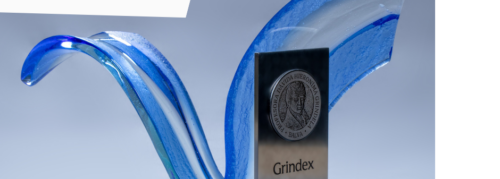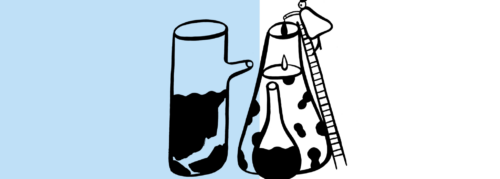During the last year, Grindeks unaudited net turnover was 15.8 million lats, an increase of 32% more than in 2001. The significant increase in turnover is linked to a rapid growth in the sales volumes of Grindeks final dosage formulations and active pharmaceutical substances.
2002 was an important and successful year for Public Joint Stock Company Grindeks. The identity of the company’s majority shareholders changed, as a result of which new investors interested in the company’s further development came on board. Compared to 2001, sales of final dosage formulations have risen by 27%, which was mainly ensured by an increase in exports to Russia and other CIS states. Particularly in demand in this market is Grindeks’ brand product Mildronate. Grindeks’ brand products (Mildronate and Ftorafur) make up 60% of the combined turnover, which testifies to the high quality of the products manufactured by the company based on scientific know how and original technologies.
The growth in exports was stimulated by the fact that in 2002, the company expanded its representative network in Russia, opened new representative offices in Kazakhstan and Belarus in addition to commencing product distribution in Uzbekistan and Azerbaijan. Likewise in the past year Grindeks began to enter the Central European market. During the past year, there was an increase in exports from the Tallinn Pharmaceutical Plant (TPP) whose majority shareholder is Grindeks.
Of the success of the past year, Grindeks Board member Jeļena Borcova says: ”Undeniably, the past year was particularly successful for Grindeks, because sales volumes rose in practically all our most important retail markets. We are planning for an increase in the sales volumes of final dosage formulations in 2003. We intend to increase both exports and sales of our products on the domestic market where competition is increasing every year. We also very much hope that there will be a postive shift in this Government’s position in regard to local pharmaceutical manufacturers, because pharmacy is the referred to a priority sector in the Latvian economic development strategy.”
Compared to 2001, there was also a 22% growth in export of active substances. This was the result of a sharp increase in sales volumes in the USA, Ireland, Denmark, Hungary and Pakistan. In particular, the demand for Oksitocine and Zopiklon has soared. The continual growth in the demand for active substances testifies to the potential of this area of the pharmacy business.
Currently almost 90% of the products manufactured by Grindeks are exported abroad, to a total of 36 countries around the world. The most important markets in terms of sales are Russia, to which 24.3% of all products are exported, the CIS with 23.2% as well as Japan with 7.4%.
The platform for the achievements of 2002 is the long-term strategy implemented by the company that is based on contemporary global trends. It was back in the 1970’s that Grindeks first began adapting its manufacturing process in accordance with the requirements of the Good Manufacturing Practice (GMP) international quality certificate. Systematic work and investments totalling around USD 10 million have ensured that in 2000,Grindeks became the first pharmaceutical manufacturer in Latvia, that conformed one of its plants in accordance with the requirements of GMP and accordingly received this English certificate. Investments in the improvement of the quality of products have reaped dividends as shown by the results achieved in 2002. Nowadays, particular attention is drawn to global quality standards and this is particularly true of the pharmaceutical sector.
Today, no less important an issue is the consolidation and unification of capital. In 1998, Grindeks acquired amajority shareholding in the TPP, but at the end of last year, the company acquired an additional 9.2% shareholding in the Estonian plant, as a result of which, Grindeks currently already owns 64.16% of sharesin the TPP. In the past year, the company transferred the TPP’s tablet and capsule plant to Riga, because nowadays manufacturing the same product in two different places is no longer economically viable.
Moreover in 2000, Grindeks commenced co-operation with the largest Lithuanian pharmaceutical company, Sanitas. In 2002, the closure of the ampule manufacturing process at Grindeks was completed and currently they are manufactured in Kaunas by the Sanitas company. This co-operation is mutually advantageous – as a result of taking over Grindeks production, Sanitas’ turnover has risen by 50%, whereas Grindeks is free to concentrate its resources on the manufacturing of tablets and capsules. This indicates that this type of co-operation ought to be further developed in the future. Therefore, the idea of establishing a Baltic pharmaceutical holding company has come to the fore.
In order to preserve and reinforce established market positions, it is important for pharmaceutical manufacturers to invest capital in the research and launch of new products, because currently leading pharmaceutical companies devote a large part of their investments to this particular area. Grindeks too is planning to significantly increase its investments into the research and launch of new products. In 2003, the company plans to invest 8% of its turnover in this area, moreover, henceforth, a structure – the New Products Council -dedicated especially to this goal will operate within the company. Besides Grindeks’ leading employees, scientists, doctors and other specialists linked to medicine will work within the structure that will generate new ideas and consult specialists working on the company’s development. This is particularly important bearing in mind Latvia’s forth coming accession to and integration into the European Union, where it will encounter heightened competition and where it will not be possible to operate successfully operate with serious research work.
Grindeks’growth is closely linked to the achievements of science and their practical utilisation, because our competitiveness will to aconsiderable extent be determined by whether we are able to successfully retail new products. In accordance of our awareness of this close link between the development of the nation as a whole and that of the company,” says Valdis Jākobsons, Grindeks Chairman of theBoard, “Grindeks is planning to continue supporting science in the future, investing capital in environmental protection, and, of course, investing capital in the development of the company, in order to provide society with safe, effective and quality medicines.”
Withour accession to the EU, there will undoubtedly be a resultant increasein the competitiveness of the labour market. We will have to consider how best to attract young employees with real potential as well as how to retain our current specialists. Both remuneration and bonuses and other additional incentives will be very important along with employee training. Grindeks has frequently paid a lot of attention to the welfare and education of its employees and is also planning to increase investments in this area during 2003.


